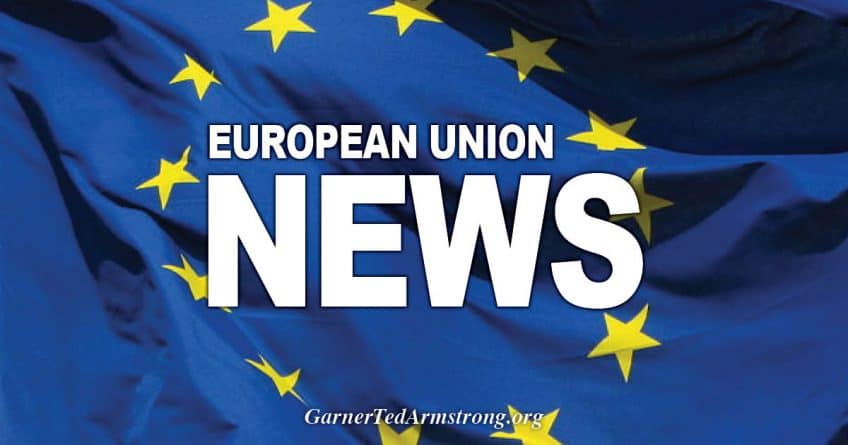
Former Irish Prime Minister Leo Varadkar has complained that Ireland will be paying more to the EU after Brexit (Photo: LUDOVIC MARIN/AFP via Getty Images)
The UK has left, but the EU remains. The psychodrama in this country about leaving has been so intense that few people on either side of the domestic debate have been able to give much thought as to what this means for the EU and its continuing members.
The EU itself has inevitably had a lot of its own bandwidth tied up by the question of Brexit – both in terms of how the negotiations define its relationship with one of its largest external markets, and in terms of what the departure of a member state says about the nature and direction of the Euro-federalist project.
The untangling of almost 50 years of integration is not yet over. There is a future relationship with the UK to negotiate before the year is out. But our formal departure from the organization nonetheless allows people and politicians on both sides of the Channel to take stock of what the future might hold for the EU.
You might expect integrationists to be optimistic. Fine, they never wanted to lose a member state – and a major one, at that – along the way, and Brexit marks the first time the EU has contracted rather than expanded, but it also signifies the removal of a roadblock to further integration.
The UK was always a reluctant member, requiring carve-outs, exemptions, and rebates, and muttering about awkward things like the democratic deficit and the need for referendums. Many times over the years, politicians and officials in Brussels have understandably griped about the way we have acted as a drag on their dreams of a unified EU superstate. Now that we’re gone, isn’t that a problem solved?

Other countries will have to start standing up for themselves (Photo: TOLGA AKMEN/AFP via Getty Images)
Not exactly. For a start, other countries that also had their doubts about various aspects of the EU’s operations have long been able to rely on the UK to rock the boat in ways that they like. No longer – without difficult Britons to rely on, they now face the uncomfortable choice of fighting those battles harder for themselves or answering to their voters for unpopular measures that may now be passed. Pro-market countries such as the Netherlands, for example, or states such as Denmark which value their opt-out from the euro must now take a firmer stance to champion their positions.
And our departure as a political member also means our departure as a net contributor to the EU’s budget. The Commission still wants to spend big, as a sign that there are no doubts and no back-pedaling on the project, but they must take €70bn (£59bn) more from the remaining members.
This is a challenge for the remaining EU states. The former Irish prime minister Leo Varadkar, of all people, finds himself complaining that the Commission’s proposed budget “means Ireland will contribute much more to the EU budget but will actually receive less back”.
Legislative and budgetary issues are not the only problems the EU faces, either. I wrote a year ago in this column that the UK was a beacon of comparative political stability in an increasingly unstable Europe with Emmanuel Macron’s government in crisis and Italy’s Five Star movement on the rise.
That has become truer over the past 12 months: we have gained a solid majority government, while Varadkar’s domestic failures have visited a Sinn Féin surge on Ireland, and the Greens are now menacing the established parties in Germany.
Sign up for the Today’s Talking Points newsletter, the best opinion from i and elsewhere here
Less stability at home makes for more fractious member states at EU summits. Leaders without good majorities find it hard to agree things, and are more prone to being brought down suddenly (just ask Theresa May).
Meanwhile, the Commission both wants and needs agreement on increasingly ambitious and contentious questions.
The EU’s biggest difficulty is that despite the huge alarm which Brexit ought to have sounded, Brussels still refuses to consider whether the project needs democratic reform or strategic redirection. More integration appears to be their only answer, regardless of the question.
Mark Wallace is executive editor of ConservativeHome.com, a politics blog
Source: https://inews.co.uk/opinion/brexit-european-union-leo-varadkar-budget-1889680
[Disclaimer]









